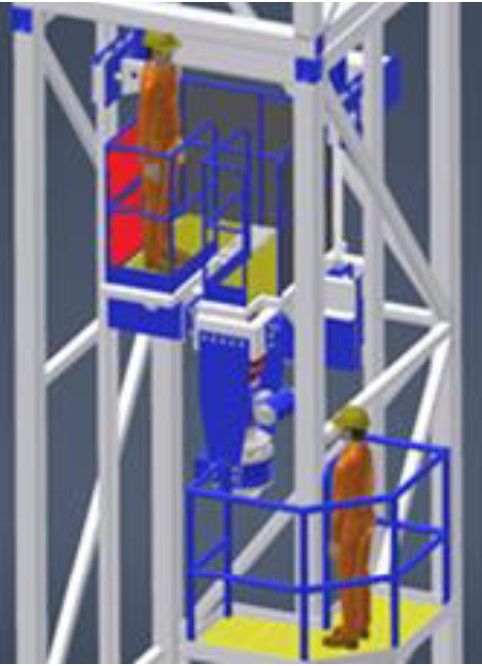LTI: person suffered serious crush injuries
What happened
During offshore drilling operations, a drilling assistant sustained serious crush injuries, resulting in several weeks away from work. He was injured when he leaned out of the rooster box, between the guard railings, and was caught between the compensator carriage and the rooster box.

What went wrong
- No-one STOPPED THE JOB: people on the back deck did not challenge unsafe behaviour: people remained in the rooster box in between tool-handling operations.
- There was inadequate management supervision – no-one verified and monitored compliance with the applicable rules, regulations and good practice;
- Procedures were not adequately controlled, maintained, and shared;
- Hazards associated with the tasks were not adequately identified and assessed in the preparation onshore, nor execution offshore;
- There was a lack of means of communication and observation (such as audio comms and CCTV) to support the management of deck activities;
- Previous lessons learned during other geotechnical drilling operations were not adequately captured in the drilling manual, shared and/or implemented on this project.
Actions and recommendations
- Our member took the following actions and recommendations
- Ensured that the procedures and work instructions supporting the operations were controlled, up to date, relevant to the operations and shared, ensuring that the team executing the operations were adequately familiarised;
- Hazard identification tools such as HAZOPS, HAZID, Risk assessment, Task risk assessment or SLAM (“Stop, Look, Analyze, Manage”) are critical in ensuring all stakeholders are aware of all the risks and mitigations, reducing the risk to “as low as reasonably practicable”;
- Adequate communication is essential between employees and supervisors, and where required should be supplemented via electronic means;
- Safety barriers and devices (e.g. railings) should not be bypassed or defeated;
- Regularly reinforce messaging to ensure that in the event of any process change or where a hazard is identified, all of us are empowered to speak up and STOP THE JOB without fear of consequence or retaliation.
Members may wish to refer to:
Safety Event
Published: 30 November 2022
Download: IMCA SF 27/22
IMCA Safety Flashes
Submit a Report
IMCA Safety Flashes summarise key safety matters and incidents, allowing lessons to be more easily learnt for the benefit of all. The effectiveness of the IMCA Safety Flash system depends on Members sharing information and so avoiding repeat incidents. Please consider adding safetyreports@imca-int.com to your internal distribution list for safety alerts or manually submitting information on incidents you consider may be relevant. All information is anonymised or sanitised, as appropriate.
IMCA’s store terms and conditions (https://www.imca-int.com/legal-notices/terms/) apply to all downloads from IMCA’s website, including this document.
IMCA makes every effort to ensure the accuracy and reliability of the data contained in the documents it publishes, but IMCA shall not be liable for any guidance and/or recommendation and/or statement herein contained. The information contained in this document does not fulfil or replace any individual’s or Member's legal, regulatory or other duties or obligations in respect of their operations. Individuals and Members remain solely responsible for the safe, lawful and proper conduct of their operations.
